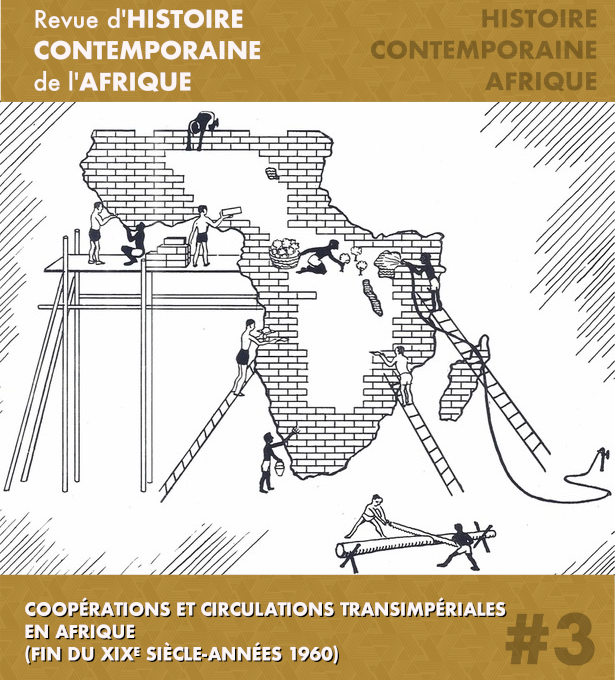The expert and the provident fund
Ilo’s technical assistance to Dakar’s provident fund (1963-1967)
DOI:
https://doi.org/10.51185/journals/rhca.2022.0312Keywords:
Senegal, ILO, social protection, expertise, technical assistanceAbstract
In the 1960s Senegal called on the International Labour Organisation (ILO) to help reorganise the Dakar Compensation Fund. The Compensation Fund was created in the mid-1950s in response to the mobilisation of industrial workers in French West Africa who demanded the same rights and protection as metropolitan workers. André Bouchôou, a French expert recruited by the International Labour Office, was finally sent to Dakar on a technical assistance mission from 1965 to 1966. With the help of the Fund’s staff, he produced a series of recommendations which he submitted to the Senegalese authorities to improve its operation. This mission constitutes an element in the Ilo’s overall strategy for establishing itself in Senegal and reflects the connections between social protection institutions around the world.
References
Balleix Corinne (2010), « La politique française de coopération au développement. Cinquante ans d’histoire au miroir de l’Europe », Afrique contemporaine, 236(4), pp. 95-107.
Belluci Stefano et Eckert Andreas (2019), General Labour History of Africa, New York, Boydell & Brewer Ltd.
Bressol Elyane, Dreyfus Michel, Hedde Joël et Pigenet Michel (dir.) (2005), La CGT dans les années 1950, Rennes, PUR.
Cooper Frederick (2004), Décolonisation et travail en Afrique, l’Afrique britannique et française, 1935-1960, trad. François-George Barbier-Wiesser, Paris, Karthala-Sephis.
Gautron Jean-Claude (1964), « L’évolution des rapports franco-sénégalais », Annuaire français de droit international, 10, pp. 837-850.
Gautron Jean-Claude (1970), « Note sur certains aspects internationaux des relations du travail en Afrique de l’Ouest », Annuaire français de droit international, 16, pp. 705-719.
Gruhn Isebill V. (1971), « The Commission for Technical Co-Operation in Africa, 1950-65 », The Journal of Modern African Studies, 9(3), pp. 459-469.
Hesseling Gerti (1985), Histoire politique du Sénégal. Institutions, droit et société, Paris, Karthala.
Kott Sandrine (2008), « Une “communauté épistémique” du social ? Experts de l’OIT et internationalisation des politiques sociales dans l’entre-deux-guerres », Genèses, 71(2), pp. 26-46.
Labrune-Badiane Céline (2012), « Portraits de coopérants antillais et guyanais au Sénégal (1960-1980) », in O. Goerg et F. Raison-Jourde, Les coopérants français en Afrique : Portrait de groupe (1950-1990), Paris, L’Harmattan, pp. 211-225.
Lespinet-Moret Isabelle et Viet Vincent (dir.) (2011), L’organisation internationale du travail. Origine, développement, avenir, Rennes, PUR.
Lichtenstein Nelson et Jensen Jill (dir.) (2016), The Ilo from Geneva to the Pacific Rim: West Meets East, Londres, Palgrave Macmillan.
Maul Daniel (2012), Human Rights, Development and Decolonization: the International Labour Organization, 1940-1970, Londres, Palgrave Macmillan.
Maul Daniel (2019), L’Organisation internationale du Travail, 100 ans de politique sociale à l’échelle mondiale, Genève, Bureau international du travail.
Plata-Stenger Véronique (2017), « L’OIT et l’assurance sociale en Amérique latine dans les années 1930 et 1940 : enjeux et limites de l’expertise internationale », Revue d’histoire de la protection sociale, 10(1), pp. 42-61.
Saunier Pierre-Yves, « Circulations, connexions et espaces transnationaux », Genèses, 57(4), 2004, pp. 110-126.
Topalov Christian (dir.) (1999), Laboratoires du nouveau siècle. La nébuleuse réformatrice et ses réseaux en France, 1880-1914, Paris, Éditions de l’EHESS.
Downloads
Published
How to Cite
Issue
Section
License
Some rights reserved 2022 Paul Mayens

This work is licensed under a Creative Commons Attribution-NonCommercial 4.0 International License.








